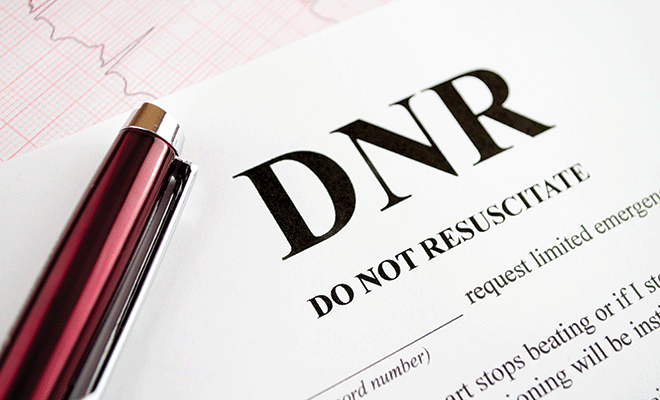
The basics of advanced health care directives
When they’re thinking about advanced health care directives, people often associate this concept with old age. However, a medical crisis can occur at any age, and if you’re too ill or too injured to make your own health care decisions, wouldn’t it offer you peace of mind to know that you had instructions for such matters fully in place?
Health care planning involves understanding the kinds of decisions that might need to be made if you are physically unable to do so, considering those decisions ahead of time and letting others know of your decisions and wishes with respect to your health care. Such decisions and desires are often translated into a document called an advanced directive, a legal document that goes into effect only if you are incapacitated and not able to speak for yourself, whether as a result of illness or severe injury, no matter what your age. This document lets others know the type of medical treatment you want under such conditions. Through this document, you can express how you want to be treated with respect to end-of-life care, and you can also adjust this document as your own life changes, whether through new information acquired or because of a change in your health.
Decisions that might arise for which an advanced directive would be beneficial include CPR (cardiopulmonary resuscitation); ventilator use; tube feeding or intravenous fluids; and comfort care. When doctors believe a cure is no longer possible and that you are dying, decisions need to be made about the type of emergency treatments employed to keep you alive. An advanced care directive acts as a game plan of sorts, predicated on your wishes.
Before initiating an advanced health care directive, it is advised you communicate with your health care professional about your current health conditions and how those might affect your health in the future. For example, if you have high blood pressure, what decisions would your family have to make should you sustain a stroke in the future?
When you are considering any medical treatment in an emergency situation, it’s important to bring your personal values into play as you prepare your directive. Would you rather live for as many days as possible or would you prefer to get the most of the days you have left? If an illness leaves you in a permanent coma or on a ventilator, is that how you want to live out the rest of your life?
If your heart stops, you may want doctors to perform CPR or use a ventilator for a short time for breathing issues, but what if CPR was required because you had a stroke that paralyzed you or left you mentally impaired? How would that change your wishes for treatment?
Obviously, the decisions you make about your advanced health care directive will change over time. What you want at age 40 can change significantly by the time you are 70. A directive allows you to modify it over time as your situation changes.
The two main parts of an advanced health care directive are the living will and the durable power of attorney for health care. The living will tells doctors how you want to be treated if you are dying or permanently unconscious and cannot make these decisions for yourself. In a living will, you can specify what treatments you do and do not want.
A durable power of attorney is a legal document that names someone to make medical decisions for you. This person is referred to as a proxy and should be familiar with your wishes and values. When choosing a proxy, consider individuals you know who share your values and views about life and medical decisions. This could be a family member, friend or even your attorney. If you choose not to name a proxy, it’s important to have a very detailed living will. Make sure you obtain the consent of the proxy before naming that person to ensure that he/she is comfortable with this responsibility.
Once you are ready to put your documents into place, you can either speak with an attorney to make them official or contact your local Area Agency on Aging, and they can help you find the correct forms to use. Rules and regulations may vary from state to state with respect to how these documents are processed.
What happens if you don’t have an advanced health care directive? In some cases, the state in which you reside will assign someone to make medical decisions on your behalf. This could be your spouse, parents or any adult children you might have.
An advanced health care directive can only be used if you are in danger of dying and need specific emergency or special measures to sustain you at a time when you are unable to express your wishes. The document speaks for you at a time when you cannot. HLM
Sources: nia.nih.gov, n4a.org and eldercare.gov.







